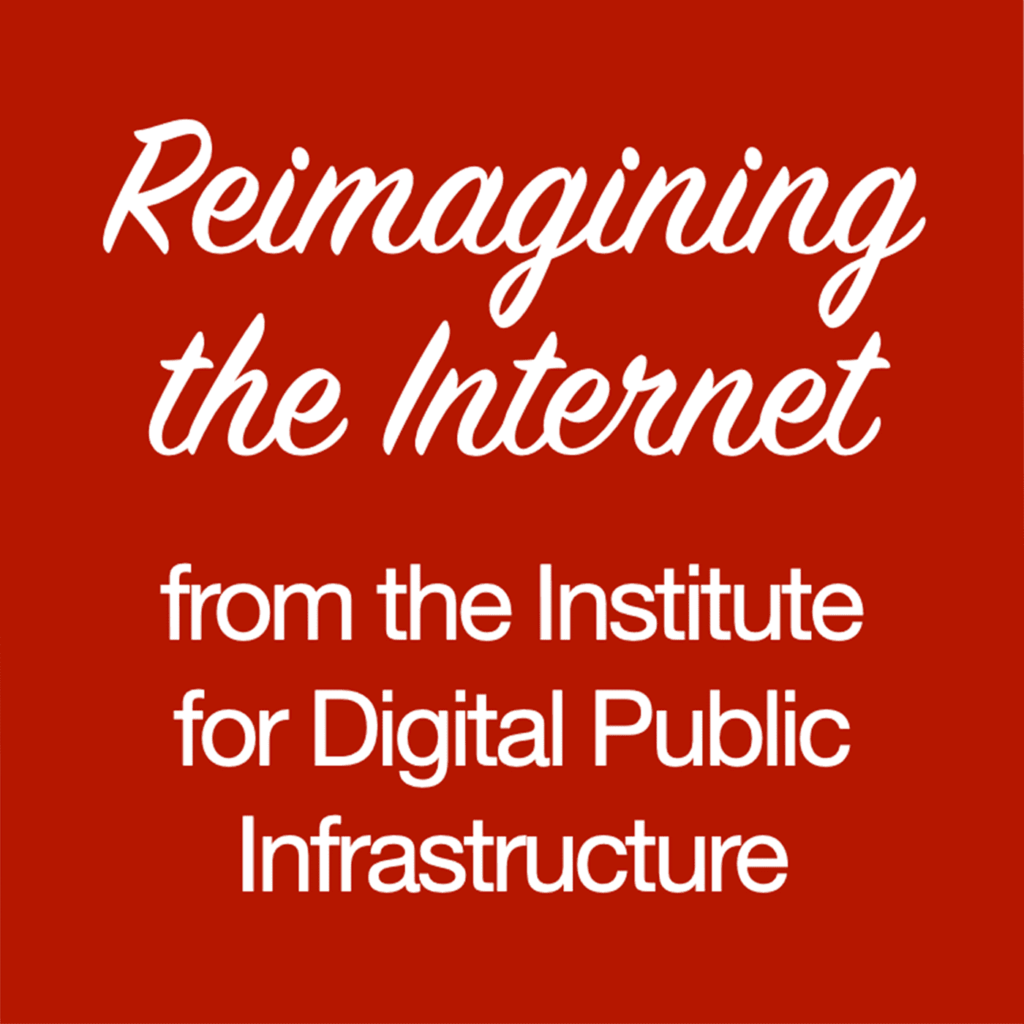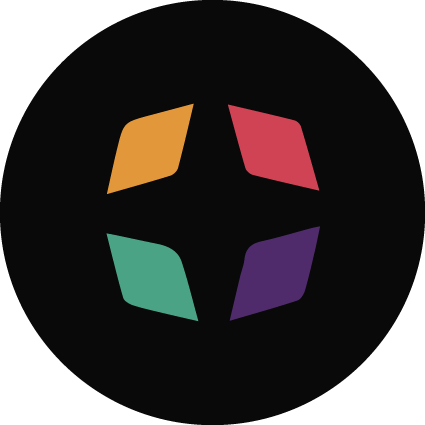Projects

Institute for Digital Public Infrastructure will launch in 2021 at the University of Massachusetts at Amherst. The institute is dedicated to exploring the idea that we can build internet systems designed to serve specific civic and public needs, rather than designing these systems solely to turn a profit. The Institute looks at legal, technical and community challenges in building these new systems, and both advocates for these new approaches as well as building new technology.
iDPI’s first projects focus on imagining and building alternative social media platforms. Rather than building a single platform designed to challenge Facebook’s dominance, iDPI plans to build hundreds of special purpose platforms that focus on building stronger communities and helping people be better neighbors. More on iDPI is available at publicinfrastructure.org

Reimagining the Internet is a podcast produced by Mike Sugarman and hosted by me. I interview a variety of people who are researching and building solutions to make the internet less awful. The core idea behind the show is that other version of the internet are possible, and that it is our collective responsibility to look beyond how the internet currently functions and imagine new ways it could operate.
Links to past episodes, including videos and transcripts, are available on the show page: https://publicinfrastructure.org/podcast/ Feel free to subscribe using whatever podcasting program you use.

Gobo.social is an experimental platform for social media aggregation. Our team at MIT thought that users should have more control over their social media experience, so we built a tool that lets you control who you hear from, the tone of your social media, whether you’re looking for politics or for fun. In the process, we realized that having a tool that lets you manage all your social media in the same place is not just helpful, but a precursor to a world where social networks are controlled by you and your neighbors, not just massive corporations.
Gobo.social v1 is still online as a browser-based service, but it’s a little slow and buggy. Version 2.0 will work as a standalone client for your phone or browser. Coming late in 2021/early 2022 as my new lab gets off the ground.

Media Cloud is an open source search engine and tool for studying the open web, located at www.mediacloud.org. Hal Roberts and I started working on Media Cloud in the late 2000s, trying to study the relationships between weblogs and mainstream news media. Yochai Benkler began working with us a few years later to understand the spread of right-wing disinformation from political blogs to new media. Rahul Bhargava, Cindy Bishop and others at MIT worked to make the tool usable by activists and researchers, while Anushka Shah, Emily Ndulue and others demonstrated how useful Media Cloud could be in understanding the influence of media around the world.
The Media Cloud project is now run by Fernando Bermejo and is one of the most important tools used to study media ecosystems – the way that ideas and perspectives move from one corner of the media to other parts of public dialog. If you study media, you might find it useful – it’s free, both as in speech and as in beer, and you can get an account at mediacloud.org

Center for Civic Media began at MIT in 2007 as a collaboration between the MIT Media Lab and the Comparative Media Studies program at MIT. I took over leadership of the Center in 2011 when I began teaching at the MIT Media Lab.
Dozens of fantastic students and hundreds of wonderful people came through Center for Civic Media over its lifetime. When I chose to leave MIT in 2020, the Media Lab closed the center. A memorial page remains online at https://civic.mit.edu/

I started blogging in late 2003, and began a project called BlogAfrica to index African bloggers. I met Rebecca MacKinnon at the Harvard Berkman Center, where she was working on a blog that shared information about North Korea through the eyes of business travelers who’d been there. We organized a track at a blogging conference about international blogging, bringing together our favorite bloggers around the world. Those folks enjoyed being in the same room so much that we ended up starting a new project in 2004 so we could work together: Global Voices.
Global Voices is alive, well, and online in dozens of different languages. Thousands of volunteers have worked as translators, authors, editors, helping change how we see and understand what’s going on in countries that are rarely in the news. Hundreds of people have started their careers as journalists or activists through Global Voices and the site is a wonderful way to learn that’s going in our weird and wide world.

I founded Geekcorps in 1999, looking for a way to combine my interests in the Internet and my interest in the developing world. Geekcorps matched volunteers from the US and European tech industry with small tech firms in Ghana, Senegal, Rwanda, Jordan, Armenia, Mongolia and other nations. Over the course of four years, we sent almost a hundred volunteers abroad for volunteer tours between three weeks and six months.
It turns out that it’s really expensive to send volunteers overseas. Geekcorps basically wiped me out of the money I made working at Tripod. We sold the nonprofit to the International Executive Service Corps, an NGO that worked with USAID, sending retired executives around the world for brief mentoring trips. It wasn’t a cultural fit, and my team and I all quit a few months into the merger. Geekcorps no longer exists, and that’s okay – in retrospect, I don’t think sending volunteers from the US to Ghana is the best way to help a country develop its technical talent. On the other hand, I can trace at least three marriages and many, many friendships to Geekcorps, so it wasn’t a total loss.

In 1994, I joined a small web startup, Tripod.com. It aspired to be a magazine for recent college graduates finding their way in the world. Over time, it became one of the first user generated content sites on the internet, allowing tens of millions of users to post personal homepages, homesteading the early web. I did a little of everything at Tripod, at one point serving as VP of Research and Development, Business Development and Customer Service. I am unlikely to ever have as much fun or as much heartbreak as I did at that job.
Tripod continues to exist at www.tripod.lycos.com, but I can’t really recommend it as a place to host your website these days.